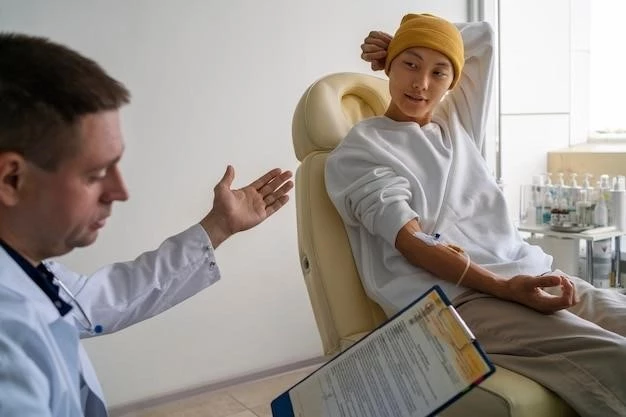Causes of Arylsulfatase A Deficiency
Deficiency in Arylsulfatase A enzyme due to genetic mutations.
Genetic Inheritance
Individuals inherit Arylsulfatase A deficiency in an autosomal recessive pattern, requiring both parents to pass on a mutated ARSA gene for the condition to manifest. Carriers usually have one normal and one mutated ARSA gene, making them asymptomatic.
Mutations in the ARSA Gene
Mutations in the ARSA gene lead to impaired Arylsulfatase A enzyme production, resulting in a deficiency. These mutations can disrupt the enzyme’s structure or function, affecting the breakdown of sulfatides in cells and leading to neurological and physical symptoms in affected individuals.
Symptoms and Signs of Arylsulfatase A Deficiency
Neurological and physical manifestations characterize the deficiency.
Neurological Symptoms
Neurological symptoms of Arylsulfatase A deficiency include peripheral neuropathy, seizures, cognitive decline, vision loss, and difficulties with coordination and motor skills. These manifestations result from impaired nerve function due to the accumulation of sulfatides in the nervous system.
Developmental Delays
Developmental delays in Arylsulfatase A deficiency present as delays in achieving developmental milestones such as sitting, crawling, and walking in affected children. These delays are due to the impact of the condition on motor and cognitive functions, requiring specialized interventions to support development.
Physical Impairments
Physical impairments associated with Arylsulfatase A deficiency include muscle weakness, decreased muscle tone, joint stiffness, and skeletal abnormalities. These impairments lead to challenges in mobility, fine and gross motor skills, and overall physical function for affected individuals.
Diagnosis and Testing for Arylsulfatase A Deficiency
Identification through enzyme assays, genetic testing, and imaging studies.
Enzyme Activity Assays
Enzyme activity assays measure levels of Arylsulfatase A to confirm diagnosis. Low enzyme activity indicates deficiency. This test, typically performed on blood or skin cells, aids in identifying individuals with Arylsulfatase A deficiency.
Genetic Testing
Genetic testing identifies mutations in the ARSA gene associated with Arylsulfatase A deficiency. This diagnostic approach helps confirm the genetic basis of the condition and assesses the risk of passing on the mutated gene to future generations through carrier screening.
Imaging Studies
Imaging studies such as MRI and CT scans help assess brain and spinal cord abnormalities in Arylsulfatase A deficiency. These diagnostic tools aid in evaluating the extent of neurodegeneration and structural changes in affected individuals for proper management and treatment planning;

Treatment Options for Arylsulfatase A Deficiency
Enzyme replacement therapy and symptomatic management strategies.
Enzyme Replacement Therapy
Enzyme replacement therapy involves administering functional Arylsulfatase A enzyme to individuals with the deficiency. This treatment aims to replace the missing enzyme, potentially slowing disease progression and alleviating symptoms. Regular infusions or injections are typically required for optimal therapeutic effects.
Symptomatic Management
Symptomatic management aims to address specific symptoms and complications of Arylsulfatase A deficiency. This approach involves therapies to manage neurological, physical, and developmental challenges, such as physical therapy, occupational therapy, seizure management, and supportive care to enhance quality of life for affected individuals.
Gene Therapy Research
Gene therapy research explores innovative approaches to treating Arylsulfatase A deficiency by correcting genetic mutations. Techniques aim to deliver functional ARSA genes to affected cells, potentially offering a long-term solution by addressing the underlying genetic cause of the condition. Ongoing studies focus on developing safe and effective gene therapy strategies for this rare disorder.
Prognosis and Life Expectancy with Arylsulfatase A Deficiency
Variable disease progression and impact on life expectancy.
Disease Progression
The disease progression of Arylsulfatase A deficiency varies, with some experiencing rapid neurological decline while others have a slower onset. Monitoring symptoms and functional decline is crucial for determining disease course and guiding treatment strategies to enhance quality of life in affected individuals.
Impact on Life Expectancy
Arylsulfatase A deficiency can significantly impact life expectancy, particularly in cases with severe neurological symptoms and rapid disease progression; Early and comprehensive treatment interventions, including symptom management and supportive care, play a crucial role in improving quality of life and potentially extending life expectancy for individuals with this rare genetic disorder.
Research and Advances in Arylsulfatase A Deficiency
Ongoing studies aim to improve treatment outcomes and develop new therapies.
Current Studies and Clinical Trials
Current studies and clinical trials focus on novel therapies and gene-editing approaches to address Arylsulfatase A deficiency. These investigations aim to enhance treatment effectiveness, understand disease mechanisms, and potentially offer new hope for individuals affected by this rare genetic disorder.
Potential Therapeutic Developments
Research explores potential therapeutic developments for Arylsulfatase A deficiency, including gene therapy, enzyme replacement innovations, and targeted treatments to address specific symptoms. These advancements aim to enhance patient outcomes, slow disease progression, and improve the quality of life for individuals with this rare genetic condition.
Arylsulfatase A Deficiency in Children
Unique considerations in managing Arylsulfatase A deficiency in children.
Early Onset and Manifestations
Arylsulfatase A deficiency typically manifests early in childhood with neurological symptoms like developmental delays, seizures, and motor impairments. Identifying and addressing these manifestations promptly are crucial for optimizing developmental outcomes and quality of life in affected children.
Challenges in Pediatric Management
Pediatric management of Arylsulfatase A deficiency poses challenges due to the complexity of neurological and physical symptoms in children. Tailored treatment plans, multidisciplinary care involving neurologists, geneticists, and therapists, and ongoing monitoring are essential to address the diverse needs of pediatric patients effectively.
Living with Arylsulfatase A Deficiency
Strategies for managing challenges and optimizing quality of life.
Supportive Care Strategies
Supportive care strategies for Arylsulfatase A deficiency involve symptom management, rehabilitation therapies, nutritional support, and psychosocial interventions. These comprehensive approaches aim to address the diverse needs of individuals with the condition and improve their overall well-being and quality of life.
Quality of Life Considerations
Quality of life considerations for Arylsulfatase A deficiency encompass holistic care, addressing physical, emotional, and social well-being. Patient-centered support, advanced care planning, and access to resources help enhance the quality of life and provide comfort for individuals and families navigating the challenges of this rare genetic disorder.
